World War III: the Safest Countries for Relocation in Times of Global Uncertainty
Table of contents
- Switzerland: Neutrality and Stability
- Sweden: A model of peace and progressive governance
- Norway: A peaceful haven with strong governance
- Canada: Safe, Diverse, and Welcoming
- New Zealand: A Pacific Safety Haven
- Finland: Consistently Ranked as One of the World’s Safest Countries
- Iceland: A land of peaceful beauty
- Luxembourg: Small but Powerful and Stable
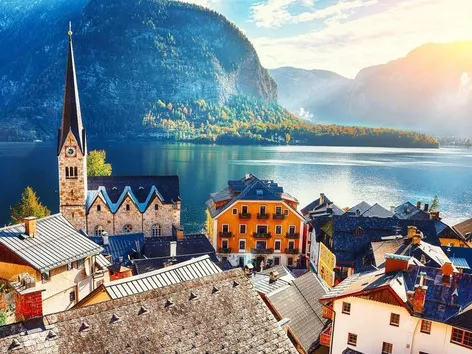
In a world where uncertainty and global upheaval have become part of everyday life, we seek out places that can provide us with refuge and stability. Find out which countries offer security, a good political system, and a high quality of life, and who in the world is most likely to avoid World War III.
The geopolitical tensions of today’s world, numerous natural disasters and economic upheavals often make people uncertain about the future. Whether it’s the constant pressure from global superpowers or the impact of regional conflicts, many around the world are looking for places that can become a home and offer stability and security, especially in turbulent times.
There are countries in the world that have managed to maintain a peaceful and safe environment despite global tensions. In addition, these places offer a high quality of life, excellent healthcare and a strong social system.
In this article, we will tell you about the safest countries to move to to be away from global tensions.
Choose a reliable health insurance policy from Visit World to travel abroad safely.
Switzerland: Neutrality and Stability
Switzerland has long been known for its neutrality, and since the early 19th century, the country has stayed away from international conflicts. Its neutral position has allowed the country to remain calm even in times of global unrest.
Why it’s safe
- Neutrality: Switzerland’s policy of armed neutrality means it doesn’t get involved in wars between other nations, making it less likely to be affected by global conflicts.
- Stable economy: Switzerland’s economy is strong, with low unemployment and a strong financial sector.
- High quality of life: With excellent healthcare, education and low crime rates, Switzerland consistently ranks highly in global safety and quality of life indexes.
Key factors:
- Strong democratic institutions
- A resilient economy with a focus on innovation
- Central location in Europe, making it a hub for international diplomacy
Sweden: A model of peace and progressive governance
Sweden has earned a reputation for its commitment to peace, social welfare and equality. It is a leader in promoting human rights, gender equality and environmental sustainability, all of which contribute to a safe and stable environment.
Why it’s safe
- Low crime rate: Sweden has one of the lowest crime rates in Europe, making it a great place for those looking for a peaceful life.
- Welfare system: Sweden’s universal welfare state provides comprehensive healthcare, unemployment benefits, and a high level of education, ensuring the well-being of its citizens.
- Global diplomacy: Sweden has a strong tradition of mediating international conflicts and promoting peace, making it an ideal location during times of global uncertainty.
Key factors
- Strong welfare and healthcare systems
- Progressive policies that promote integration and equality
- Active participation in international peacekeeping and diplomacy
Norway: A peaceful haven with strong governance
Norway is one of the most peaceful and stable countries in the world. The country has a small population, high economic stability, and a strong commitment to environmental sustainability, making it an attractive destination for those seeking safety during global unrest.
Why it’s safe
- Low crime rate: Norway consistently ranks among the safest countries in the world, with a strong focus on community policing and social cohesion.
- Political stability: Norway’s monarchy and parliamentary system provide a stable governance structure that contributes to long-term political stability.
- Robust healthcare system: Universal healthcare and excellent education make Norway a safe choice for both families and individuals.
Key factors
- High standard of living and social welfare programs.
- Low unemployment and a strong diversified economy.
- Active in global peacekeeping efforts, particularly within the UN and NATO.
Canada: Safe, Diverse, and Welcoming
Canada is known for its friendly people, diverse culture, and political stability. Despite its geographical proximity to the United States, which has sometimes been embroiled in conflict, Canada has maintained its position as a peaceful, welcoming nation with high safety standards.
Why it’s safe
- Low crime rate: Canada is one of the safest countries in North America, with low rates of violent crime and a strong emphasis on community policing.
- Political stability: The country has a long history of stable governance, and its political system is inclusive and democratic.
- Healthcare and education: Canada provides universal healthcare and top-notch education systems, offering a safe and quality of life for its residents.
Key factors
- Welcoming and inclusive immigration policies.
- Close ties with international organizations focused on diplomacy and human rights.
- High standard of living and thriving economy.
New Zealand: A Pacific Safety Haven
New Zealand is known for its peaceful environment, low crime rates, and beautiful landscapes. The country’s isolation in the South Pacific allows it to remain relatively unprotected from global conflicts and geopolitical pressures.
Why it’s safe
- Geographic isolation: New Zealand’s remote location makes it less susceptible to international conflicts or global crises.
- Low crime and high quality of life: With a focus on social security, environmental conservation, and an overall quality of life, New Zealand is a highly desirable destination for those seeking safety.
- Political stability: The country has a strong democratic system and is known for its progressive governance.
Key factors
- Low population density and high standard of living.
- Culture of sustainability and environmental conservation
- Active in peacekeeping and humanitarian work, with a strong focus on diplomacy.
Finland: Consistently Ranked as One of the World’s Safest Countries
Finland is often considered one of the safest countries in the world, boasting exceptionally low crime rates, excellent social services, and a commitment to social equality. Finland’s reputation for stability has made it a good choice for those seeking safety and a high quality of life.
Why it’s safe
- Low crime rate: Finland consistently has one of the lowest crime rates in Europe.
- Political neutrality: Although Finland shares a border with Russia, it maintains a policy of neutrality in global conflicts, which allows it to avoid external pressure.
- Social stability: Finland’s strong social protection systems, such as universal healthcare and social security programs, contribute to a high standard of living and security for its residents.
Key factors:
- High quality of life and well-being.
- World-leading education system.
- Active participation in international peacekeeping and diplomacy.
Iceland: A land of peaceful beauty
Iceland is known for its stunning natural beauty and peaceful society. It is one of the most politically stable countries in the world, with a small population and an environment that is largely unaffected by global conflicts.
Why it is safe
- Low crime rate: Iceland is consistently ranked as one of the safest countries in the world, with almost no violent crime.
- Political stability: Iceland has a strong democratic tradition and a history of peaceful rule.
- Environmental awareness: The country places great emphasis on sustainability and environmental protection, which contributes to a high quality of life.
Key factors
- Small population, which contributes to better community cohesion.
- High levels of gender equality and social welfare programs.
- Active in international humanitarian work and environmental protection.
Luxembourg: Small but Powerful and Stable
Luxembourg, although small, is the richest and most politically stable country in Europe. It offers an excellent quality of life and is a center of international finance and diplomacy, making it a safe and prosperous place to move.
Why it is safe
- Political stability: Luxembourg has a stable government and a history of remaining neutral in international conflicts.
- Economic security: The country's strong economy, based on finance, banking and business services, provides residents with a wide range of opportunities.
- High quality of life: With an excellent healthcare system, education and low crime rate, Luxembourg is a very safe and attractive country to live in.
Key factors
- Wealthy, prosperous and diverse economy.
- High standard of living and low crime rate.
- Strong social security and healthcare systems.
When considering moving to a safe and stable country, it is important to consider factors such as political neutrality, low crime rates, economic stability and quality of life. Countries such as Switzerland, Sweden, Norway, Canada, New Zealand, Finland, Iceland and Luxembourg remain resilient to global conflicts, offering their residents a safe and peaceful environment. Whether you are looking for a new place to move to or simply want to have a backup plan for the future, these countries offer some of the safest and most stable environments in the world.
Planning a trip or moving abroad? A travel insurance policy is an important component of a successful trip, as it guarantees high-quality medical care anywhere in the world and can protect you from unnecessary expenses during your trip.
Buy insurance from trusted agents on the Visit World portal!
Remember! Some countries are island states with political neutrality, which means that the likelihood of military conflict is quite low. We have already talked about the countries that are likely participants in World War III and the top safest countries in the world in 2024.
Products from Visit World for a comfortable trip:
Travel guide for 200 countries;
Legal advice from a local specialist on visa and migration issues;
Travel insurance around the world (please select the country of interest and citizenship to receive services);
Medical insurance all over the world.
We monitor the accuracy and relevance of our information, so if you notice any errors or inconsistencies, please contact our hotline.
Recommended articles
2 min
Expats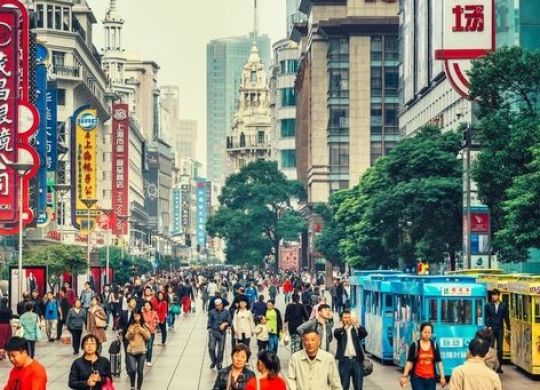
Every year, more and more expats dream of moving to China for permanent residence, because the country offers favorable conditions for living, working and relaxing. Learn more about the features of life in the country, the necessary documents for obtaining a visa and the conditions for obtaining Chinese citizenship in 2025
21 sty. 2025
More details2 min
Expats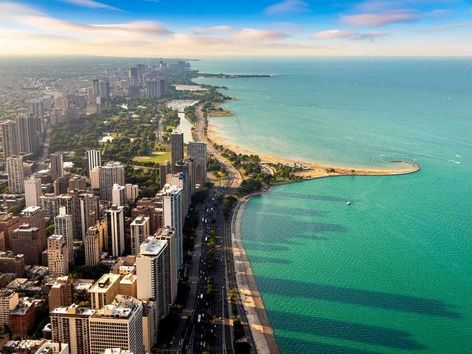
Best cities for immigrants in US: where should a foreigner move in 2025?
The United States of America attracts people from all over the world with its cultural diversity, economic opportunities, and high standard of living. For many immigrants, choosing a place to live in the United States is an important step in a new phase of life. Learn more about the best cities in the US for expats
03 lut. 2025
More details2 min
Work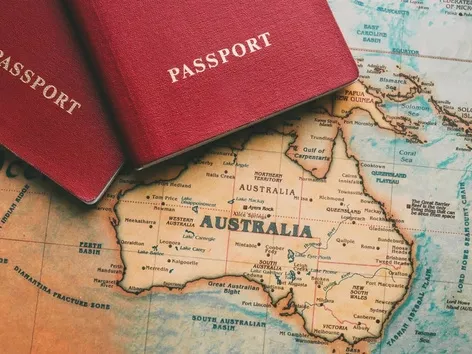
Immigration to Australia 2025: the most popular Australian visas and their conditions
Australia is actively attracting skilled professionals, entrepreneurs and young travelers by offering a wide range of visas. Find out which visas are available in Australia in 2025, who can get them and the allowed period of stay under the permit
17 mar. 2025
More details1 min
Podróż samolotem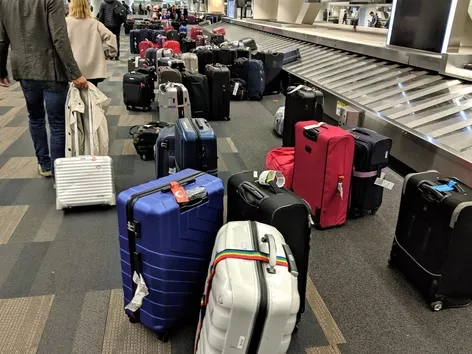
In recent months, airlines around the world have increasingly started to eliminate free checked baggage allowances for passengers, a noticeable trend that spans both budget and traditional carriers. Find out what has changed in airline baggage policies, including in Europe, Asia, Australia, Latin America and the US
21 mar. 2025
More detailsAll materials and articles are owned by VisitWorld.Today and are protected by international intellectual property regulations. When using materials, approval from VisitWorld.Today is required.
